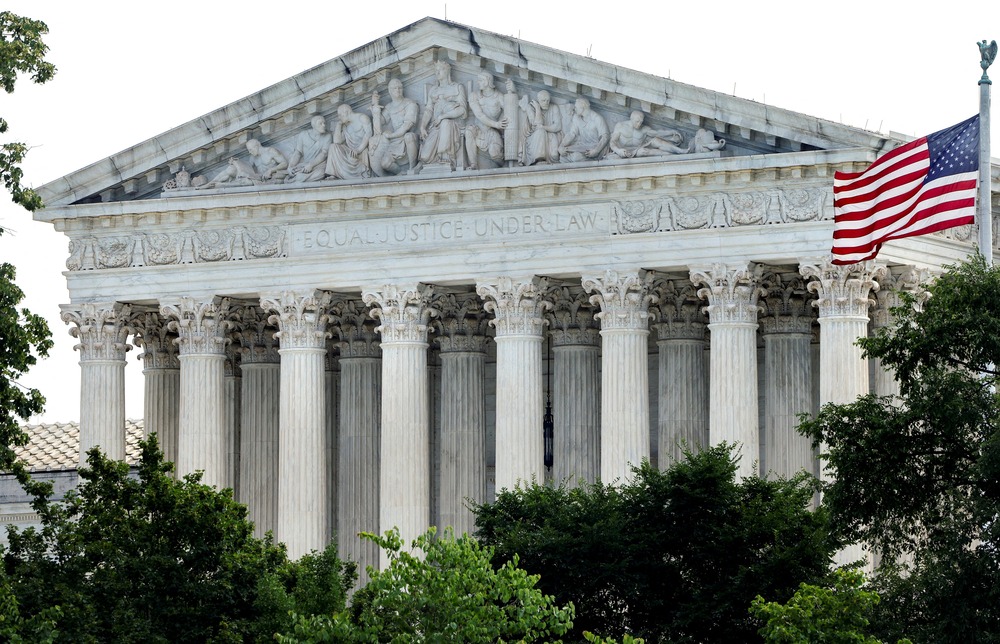
The Supreme Court on June 27 dismissed a case concerning abortions for medical emergencies in Idaho, sending the case back to a lower court without resolving the central question of whether a conflict exists between Idaho's abortion restrictions and federal law governing emergency health care.
The procedural ruling will in effect allow abortions for women facing health emergencies in Idaho, despite the state's near-total ban on the procedure.
In an unsigned decision, the court voted 6-3 to dismiss the case, with Justices Samuel Alito, Clarence Thomas and Neil Gorsuch dissenting from that ruling.
Supporters of Idaho's law argued it makes appropriate exceptions for emergency circumstances, while opponents argued that the law runs afoul of federal requirements to provide stabilizing care to pregnant women experiencing adverse effects in emergency rooms.
The federal law in question, the Emergency Medical Treatment and Labor Act, or EMTALA, obligates doctors and hospitals to attempt to stabilize both mother and unborn child in an emergency.
Justice Kentanji Brown Jackson, despite voting with the majority, argued the court should resolve the dispute at hand.
"So, to be clear: Today's decision is not a victory for pregnant patients in Idaho. It is delay," she wrote.
Justice Amy Coney Barrett, meanwhile, who also voted with the majority, argued that the circumstances of the case have changed since the Supreme Court agreed to take it up and the scope of the dispute is now "unclear."
"Since this suit began in the District Court, Idaho law has significantly changed — twice," she wrote.
Barrett also argued the federal government "identified PPROM (preterm premature rupture of the membranes), placental abruption, pre-eclampsia, and eclampsia as conditions for which EMTALA requires an emergency abortion to be available. (The same conditions that the Government's witnesses identified — before Idaho's law changed.)"
But Barrett pointed out that the petitioners also argue Idaho law "permits physicians to treat each of these conditions with emergency abortions, even if the threat to the woman's life is not imminent."
Advertisement
The Biden administration has sought to use EMTALA to require hospitals to perform emergency abortions in states that have restricted abortion following the June 2022 Supreme Court decision in Dobbs v. Jackson Women's Health Organization, which overturned the high court's previous abortion precedent.
The administration has argued that doctors must perform abortions when a woman's life is in jeopardy from the pregnancy under the 1986 emergency health care law, while others argue that law requires stabilizing care be administered to both mother and unborn child, as gestationally appropriate.
"Today, the court said that Idaho will be able to enforce its law to save lives in the vast majority of circumstances while the case proceeds," Idaho Attorney General Raúl Labrador told reporters on a June 27 press call.
Labrador argued the state's law does contain exceptions for emergencies, and the Idaho Supreme Court previously "made it really clear that the life-threatening condition does not have to be immediate, and so there were no immediacy requirements."
"So as long as (doctors are) exercising a good faith judgment that the condition could lead to death, the Idaho Supreme Court, the Legislature, and I have all said that as long as they have a good faith belief that the that their life could be in jeopardy, even if it's not immediate, that they can perform the abortion," Labrador said. "And this is where I think some people in bad faith have actually tried to confuse these doctors, and that's why they're confused because they somehow think that the state and local prosecutors are not going to abide by what the law says. And I just categorically dismiss and reject those arguments by the left."
In a statement, President Joe Biden said, "Today's Supreme Court order ensures that women in Idaho can access the emergency medical care they need while this case returns to the lower courts."
"No woman should be denied care, made to wait until she's near death, or forced to flee her home state just to receive the health care she needs," he said. "This should never happen in America. Yet, this is exactly what is happening in states across the country since the Supreme Court overturned Roe v. Wade."
In a statement, Marjorie Dannenfelser, president of SBA Pro-Life America, said, "While this litigation continues, it's a reminder and a wake-up call that the stakes of the coming election are higher than ever for unborn children and their mothers."
The case returns to the 9th U.S. Circuit Court of Appeals for further consideration.







